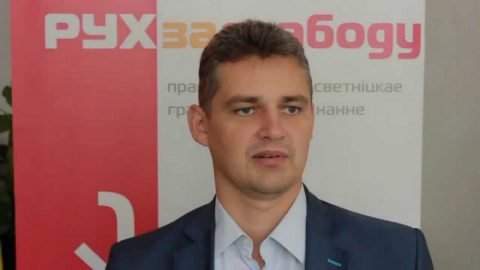Electoral precedent failed
August 10, rejected the complaint of a number of citizens of Brest, who appealed the electoral proceedings.
The plaintiffs demanded that the court review the verdict of Brest Regional Court, which refused to bring proceedings on the results of the formation of the Brest Regional Territorial Election Commission by the Brest Regional Council and Brest Regional Executive Committee.
Therefore, the attempt of the representatives of the democratic opposition forces to get the formation of the TEC reviewed through court yielded no results.
First Deputy Chairman of the movement "For Freedom" Yury Hubarevich attended the hearing at the Supreme Court. In conversation with the correspondent of Radio Liberty, he first recalled the history of the case:
"10 people, as stipulated by the Electoral Code, nominated to the commission put a member of the movement "For Freedom" Siarhei Vakulenka, but he wasn't included in the commission. According to the authors of the appeal to the Supreme Court it was done because of his political beliefs. Then, 9 out of 10 people who had signed up for Vakulenka, filed a complaint on the decision on the formation of territorial commissions to the regional court. However, the court refused to bring any proceedings, saying that according to the law all ten persons needed to sign the appeal.
The complaint, filed to the Supreme Court, states that here the Brest Regional Court confused two various rights: "There is the civil right to nominate representatives to election commissions (and there really is the requirement that the nominating group shall include not less than 10 people) and the right to appeal against the decision of the bodies that formed such electoral commissions (here the Electoral Code does not establish any quantitative requirements."
"However, the Supreme Court actually supported their colleagues from the Regional Court", continues Mr. Hubarevich. "The applicants were unable to come to come to Minsk for the hearing on August 10, being busy at work. The judges, in fact, even didn't voice the pretensions of the plaintiffs, which primarily concern a violation of their right to appeal the decision of the body that formed the territorial commission.
Athwart the absence of the appropriate provisions in the Election Code, the Supreme Court confirmed the view of the regional court that all people who had nominated Mr. Vakulenka to the commission, all ten persons, were to have signed the appeal to the court.
The electoral legislation of Belarus has allegedly liberal position that almost any decision can be appealed in court. But when it comes to practice, there appear many pitfalls – citizens are wrongly denied even in the consideration of the cases.
We have passed two court instances in Belarus. As far as I know, now the activists of our movement will prepare a communication to the United Nations Human Rights Committee."
Thus, only 10 out of 63 persons, nominated to the territorial election commissions by the democratic forces, remain members of the commissions so far.


